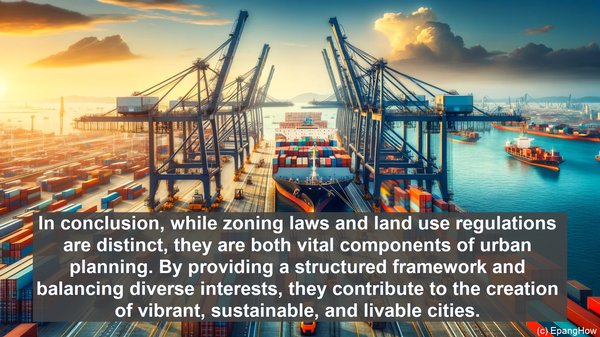Introduction: The Backbone of Urban Planning
Hello everyone! When it comes to shaping the physical landscape of a city, two key elements come into play: zoning laws and land use regulations. While they may seem similar at first glance, they have distinct roles and objectives. Let’s dive deeper into this topic.
Defining Zoning Laws: Dividing the City
Zoning laws are essentially a set of regulations that divide a city into different zones or districts. These zones are designated for specific uses, such as residential, commercial, industrial, or recreational. The primary purpose of zoning is to ensure that land use is organized and that incompatible activities are kept separate. For example, a residential zone would typically prohibit industrial activities, ensuring a peaceful living environment.
Understanding Land Use Regulations: Balancing Interests
Land use regulations, on the other hand, are broader in scope. While they may include zoning provisions, they also encompass other aspects, such as building codes, environmental regulations, and historic preservation guidelines. The goal of land use regulations is to strike a balance between different interests, including economic development, environmental sustainability, and cultural preservation. They provide a comprehensive framework for guiding development in a city.

Key Differences: Specificity and Flexibility
One of the main differences between zoning laws and land use regulations lies in their level of specificity. Zoning laws are often more specific, dictating the exact uses and activities allowed in each zone. Land use regulations, on the other hand, provide a broader framework, allowing for more flexibility and adaptability. This flexibility is particularly important in dynamic urban environments that undergo constant change.

The Role of Zoning Boards and Planning Commissions
To ensure the effective implementation of zoning laws and land use regulations, most cities have dedicated bodies, such as zoning boards or planning commissions. These entities review development proposals, grant permits, and enforce compliance. They play a crucial role in maintaining the integrity of the city’s development framework and ensuring that it aligns with the broader goals of the community.
